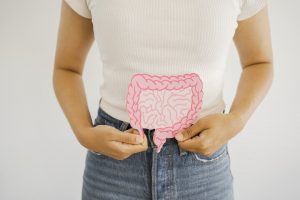Promising research by scientists at Baylor College of Medicine and collaborating institutions may lead to the development of a noninvasive stool test and a new therapy for endometriosis, a painful condition that affects nearly 200 million women worldwide. The study was published in the journal Med.
Stool of Women With the Condition
Endometriosis occurs when the uterine lining grows outside of its normal location, such as on the surrounding bowel or the membrane that lines the abdominal cavity. This usually causes bleeding, pain, inflammation and infertility. It generally takes about seven years for the disease to be recognized and is often misdiagnosed as an intestinal disorder. Thus, delayed diagnosis, along with current use of invasive diagnostic procedures and ineffective treatments, underscore the need for improvements in the treatment of endometriosis, according to corresponding author Dr. Rama Kommagani, an associate professor in the Department of Pathology and Immunology at Baylor.
Previous studies by the researchers in mice have shown that the microbiome, the communities of bacteria living in the body, or their metabolites, the products they produce, may contribute to disease progression,” said Kommagani. In the current study, the researchers took a closer look at the role of the microbiome in endometriosis by comparing the bacteria and metabolites present in the stool of women with the disease to those of healthy women. They found significant differences between them.
The results suggest that the stool metabolites found in women with endometriosis could be the basis for a non-invasive diagnostic test, as well as a potential strategy for slowing the progression of the disease. The researchers discovered a combination of bacterial metabolites that occurs only in endometriosis. These include the metabolite 4-hydroxyindole. This compound is produced by good bacteria, but it is present in lower amounts in women with the disease than in healthy women.
The Role of the Microbiome in Endometriosis
There are studies in animal models of the disease that have detected specific bacterial metabolites associated with endometriosis. This study is the first to discover a unique metabolomic profile associated with human endometriosis, which brings us closer to a better understanding of the human disease and the potential identification of better treatment options. Furthermore, extensive studies showed that the administration of 4-hydroxyindole to animal models of the disease prevented the development and progression of endometriosis-associated inflammation and pain.
“Interestingly, our findings may also have implications for another condition. The metabolite profile we identified in endometriosis is similar to that observed in inflammatory bowel disease (IBD), suggesting intriguing links between these two conditions,” said Kommagani. These findings support the role of the microbiome in endometriosis and IBD. The researchers are continuing their work on the development of a non-invasive stool test for endometriosis. They are also conducting the necessary studies to evaluate the safety and efficacy of 4-hydroxyindole as a potential treatment for this condition.





